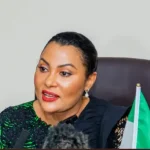ECOWAS leaders to push Mali junta to hand over power within a year
West African leaders seeking a return to democracy in Mali will on Friday demand that the military junta that ousted the president in a coup last week appoint a civilian head of government to oversee a transition lasting no more than a year.
The junta has said the political transition will last at least two years, but the leaders of the 15-nation Economic Community of West African States (ECOWAS) will tell the officers that engineered Aug. 18 the coup to cut that period in half.
“ECOWAS will not accept any transition longer than twelve calendar months,” an internal report by mediators dispatched to the Malian capital Bamako last week said.
The report, not published by ECOWAS but posted on several websites, also requires that civilians fill the posts of both president and prime minister.
Mali’s neighbours and international partners fear that prolonged instability in Mali could further destabilise the West African nation and undermine the fight against Islamist militants there and in the wider Sahel region.
The mediators held three days of talks with the coup leaders that ended on Monday with no agreement, but actions by the junta suggest there may be room for a compromise.
The coup leaders, who are anxious for regional sanctions that ECOWAS imposed on the country since President Ibrahim Boubacar Keita’s ouster to be eased, had originally said the transition back to civilian government would take three years.
As a potential gesture of goodwill ahead of Friday’s virtual summit with ECOWAS leaders, the soldiers on Thursday released Keita and allowed him to return home.
“The onus is on the (junta) to provide assurance on a quick return to political normalcy through a credible process. This would facilitate the process for the lifting of sanctions,” the mediators’ report also said.
Ten days ago Keita dissolved parliament and resigned, hours after being detained at gunpoint and taken to military barracks outside the capital.
According to the document, Keita repeatedly told the ECOWAS mission he stepped down voluntarily “for the peace and reconciliation of Mali.”








